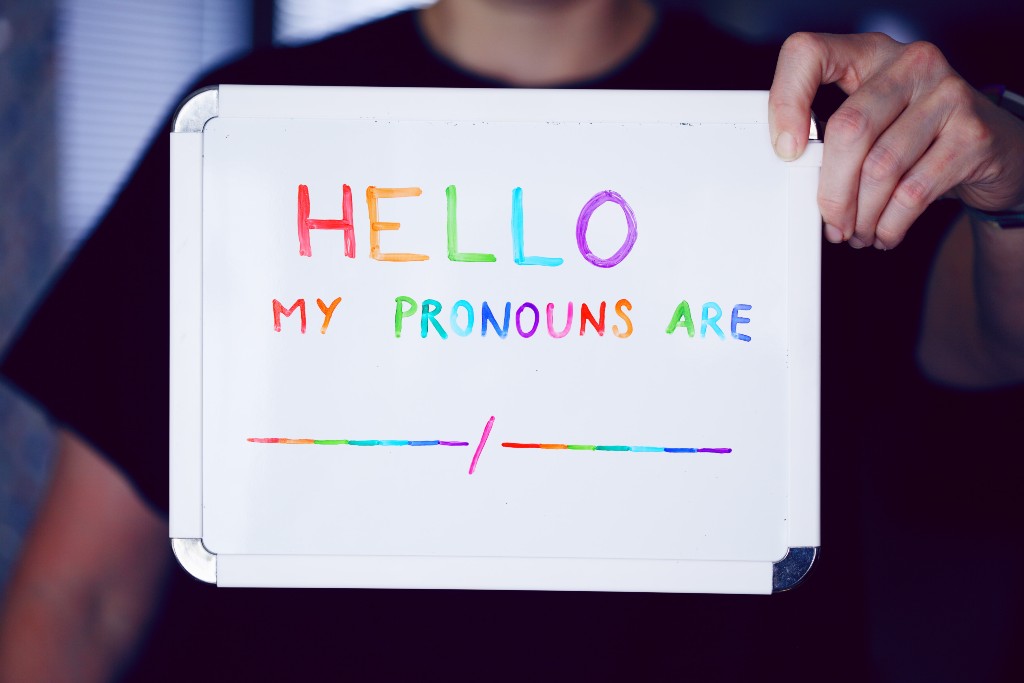In the world of work this week… one report ranks the world’s top business cities and how those cities are helping keep women safe, fight gender equality, and provide benefits for working mothers. Spoiler alert: none of the 15 cities examined passed with flying colors.
What else matters this week?
We’re inspired by this story of a women who embraced her disability and built her own business, despite the odds.
One writer and professor, born deaf-blind, speaks about being seen with a disability. “Being disabled isn’t a burden. It’s the idea of not being welcome that’s the burden.”
Do young workers seek purpose from their work, or are they just looking for the next paycheck? Our Global CEO for 1 Month makes the argument for a greater purpose – and explains how companies can recruit in light of this.
Spotify is taking on the YouTube empire. They’ve launched a new video podcasting feature in hopes to compete with the video giant. What does it mean for you? It could be time to get in on the ground floor and build a new audience.
We’ve got a full breakdown of all the top headlines you can’t miss this week.
#1. The world’s top business cities are still failing women.
“She was just walking home.”
That’s what millions of women said when they read the story of Sarah Everard, abducted from a London street in March by a police officer. That officer later raped and murdered the 33-year-old marketing executive.
Sarah’s death put a sharp focus on society’s failure to protect women from harm – both in the U.K. and abroad. For millions of working women across the globe, the world’s largest cities are failing them. Instead of enabling women to break glass ceilings or remain safe from violence, cities across the world are often hindering women and excluding them.
A Bloomberg Businessweek analysis of 15 global cities found that each city fails career women in multiple ways – and no city is doing enough to keep women safe while fighting to end gender inequality. Toronto, for example, came in first with a 3.66 out of a possible 5 ranking, while Sao Paulo came in last, with a 2.68 ranking. The performance of these cities reveals structural and social-gender inequalities. Cities were graded based on mobility, maternity provisions, equality, and wealth. In addition, Bloomberg surveyed at least 200 working women in each location. Read the full report here.
#2. Boomers, Gen Z, Millennials…and Gen Alpha?
It’s official: Gen Alpha has arrived. Marketers are pouring money to learn more about this generation and their tastes and habits.
Who is Gen Alpha? These kids, born from 2010 to 2024, are growing up online unlike any other generation. The oldest Gen Alpha members are only 11 years old, but they’re already making their mark:
- These youths will grow up understanding that they can influence the ballot box before reaching voting age
- This generation is unusually visual in how they consume content
- Most of these youths won’t remember a world without Covid-19, or an iPhone
- These youths have strong sway over adults’ purchasing decisions, even from a young age
"They are very sophisticated," McCrindle, the founder and principal of McCrindle Research in Sydney, tells Axios. "We can no longer design products for them and push the products at them. They want a seat at the table." To learn more about this generation, and their habits, read the Axios breakdown.

#3. The “Facebook Papers” paint a dire photo for the social network giant
Facebook is in the news again, this time as news outlets bring forth the “Facebook Papers.” More than a dozen news outlets have worked together to uncover these revelations, based on whistleblower Frances Haugen’s trove of internal company documents. The company’s employees have warned their leaders about the social media company’s effects on society and politics in the U.S. and beyond. Facebook leaders have opted to put the company’s image and profits ahead of the public good – even when the effect of that may be violence or harm.
Why does it matter? Facebook has come under fire for years now, and these documents detail a clear and present picture: Facebook is struggling to pursue their business objectives while fighting with major problems, from hate speech to inciting violence.
Three of the biggest revelations from the leaked whistleblower documents, as outlined in NPR, include:
- Facebook continues to struggle to police information abroad
- Facebook is grappling with an aging userbase – and a disinterested younger audience
- Facebook struggles with policing content that leads to radicalization and mental health issues

#4. UK haulage industry tells PM to act now on supply chains – or face Christmas shortage.
Labour shortages in the U.K. persist, and if action isn’t taken soon, millions across the country will see a Christmas crisis, according to a report in the Guardian. Heads of multiple trade bodies and businesses in the trucking and food industries wrote to the prime minister this week, saying that not enough has been done to fix the shortage of 100,000 HGV drivers. Measures meant to fix the problem, like a three-month visa, “simply do not go far enough to tackle the crisis and protect the UK economy in the months ahead.”
In the letter, coordinated by the Road Haulage Association (RHA), leaders said the issue will compound in time for Christmas without further action. That HGV driver shortage was behind last month’s petrol shortages and supermarket supply shortage, among other issues. Another big contributing factor to the issue: limited apprenticeships and an aging workforce. Read more in the Guardian.

#5. “Rent-a-robot” is a game-changer for manufacturing.
In an Ohio chemical factory, workers help transfer containers into carts and boxes – as fast as humanly possible. It’s back-breaking work, but soon, a new team will roll in: a collaborative robot, or cobot, designed to help human workers take on higher-value tasks.
Robots have been transforming the world of work. With little upfront investment in robots, part of the financial risk is removed. Leasing provides flexibility that wouldn’t exist if manufactures had to buy robots or develop their own.
“Given today’s increasingly tight labor market, more manufacturers should explore these models,” said Mike O’Donnell, vice president at MAGNET, told Forbes. “As the industrial ecosystem adjusts to the labor crunch, companies placing orders will seek out manufacturers with human-robot integration as the best way to ramp up production.”
There’s relatively little risk when it comes to renting robots – and the technology has made big strides in recent years. Read more at Forbes.




